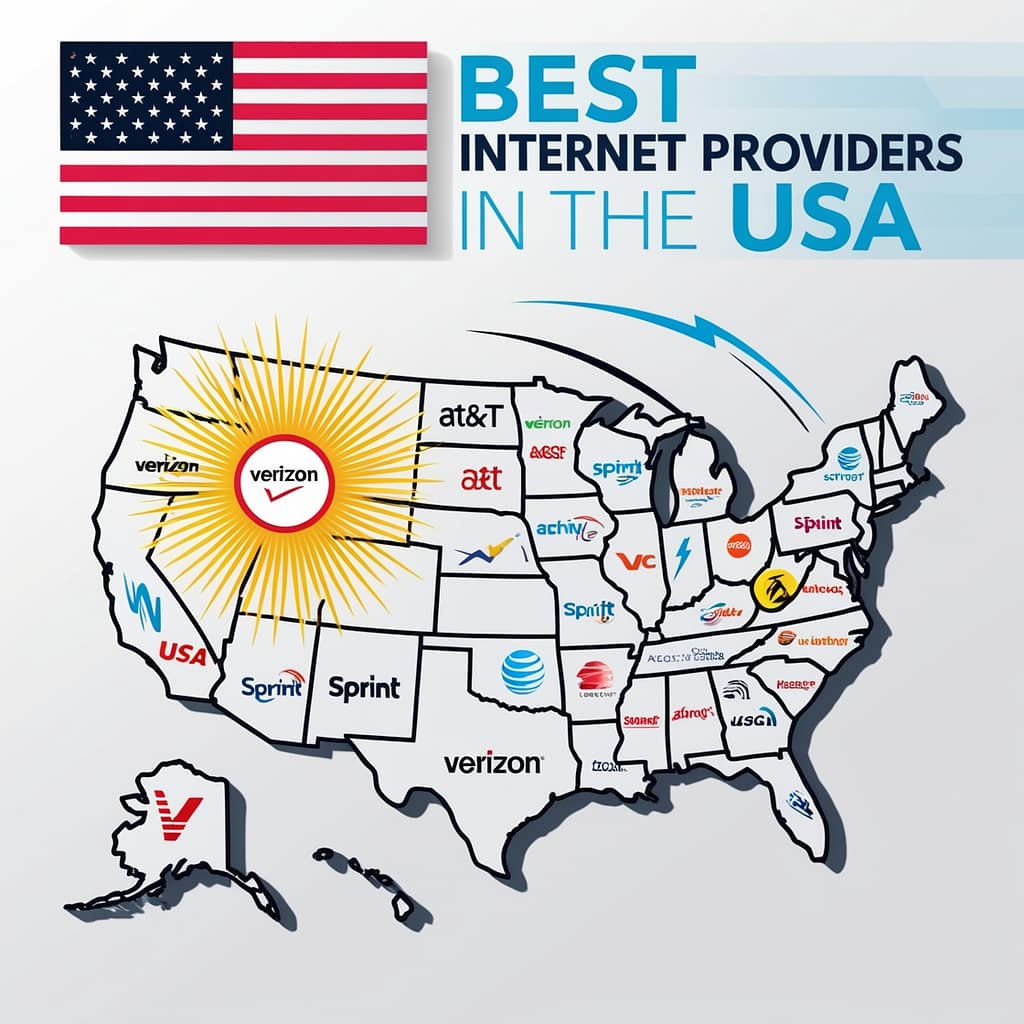When it comes to choosing an internet provider in the United States, customers have a variety of options. Whether you’re looking for high-speed fiber, reliable cable, or budget-friendly DSL, several companies stand out in terms of performance, speed, and customer satisfaction. Here’s an overview of some of the best internet providers in 2024.
1. Xfinity
Overview: Xfinity, a subsidiary of Comcast, is one of the largest internet service providers in the USA. With widespread availability across many states, it offers a range of plans to fit different needs.
Speeds: Up to 6 Gbps in select areas.
Pros:
- Wide coverage area
- Flexible plans and pricing
- Strong bundling options with TV and phone services
Cons:
- Data caps on some plans
- Customer service issues reported by users
2. Verizon Fios
Overview: Verizon Fios is renowned for its fiber-optic internet service, offering impressive speeds and reliability. It is available in many urban and suburban areas.
Speeds: Up to 940 Mbps, with symmetrical upload and download speeds.
Pros:
- No data caps
- High-speed fiber internet
- Consistently high customer satisfaction ratings
Cons:
- Limited availability in rural areas
- Higher prices compared to some cable providers
3. AT&T Internet
Overview: AT&T provides both DSL and fiber internet services, and it has been expanding its fiber network significantly over the past few years.
Speeds: Up to 5 Gbps (fiber), with DSL options varying widely.
Pros:
- Extensive coverage, especially in urban areas
- Bundling with AT&T’s wireless services is a plus
- Competitive pricing for fiber plans
Cons:
- Variable speeds with DSL
- Customer service experiences can vary
4. Google Fiber
Overview: Known for its lightning-fast speeds and simple pricing structure, Google Fiber is a popular choice in cities where it’s available.
Speeds: Up to 2 Gbps.
Pros:
- Straightforward pricing with no data caps
- Excellent customer service ratings
- Fast installation process
Cons:
- Limited availability in select cities only
- No bundling options with TV or phone services
5. Spectrum
Overview: Spectrum is a cable internet provider that covers a broad area in the U.S., offering various speed and pricing options.
Speeds: Up to 1 Gbps.
Pros:
- No contract required, allowing flexibility
- Wide availability across many states
- No data caps
Cons:
- Customer service ratings are mixed
- Speeds may be slower during peak hours
6. Cox Communications
Overview: Cox is another major cable internet provider that offers competitive pricing and diverse plans suitable for different users.
Speeds: Up to 1 Gbps.
Pros:
- Flexible plans and payment options
- Good bundling packages with TV and phone services
- Strong speeds in most areas
Cons:
- Data caps on certain plans
- Customer service can be inconsistent
7. Frontier
Overview: Frontier offers both DSL and fiber internet services, focusing on underserved areas. Its fiber options provide excellent speeds for rural users.
Speeds: Up to 5 Gbps (fiber).
Pros:
- No data caps on fiber plans
- Focus on expanding service in rural areas
Cons:
- DSL speeds may be slow
- Customer service ratings vary widely
Conclusion
Choosing the best internet provider depends on your specific needs, including speed requirements, budget, and availability in your area. While Xfinity and Spectrum offer extensive coverage and various plans, Verizon Fios and Google Fiber are excellent for those seeking high-speed fiber options. Meanwhile, AT&T and Frontier cater to users looking for reliable service in more remote locations.
Before making a decision, consider your household’s internet usage, compare plans, and read customer reviews to ensure you select the best provider for your needs.



